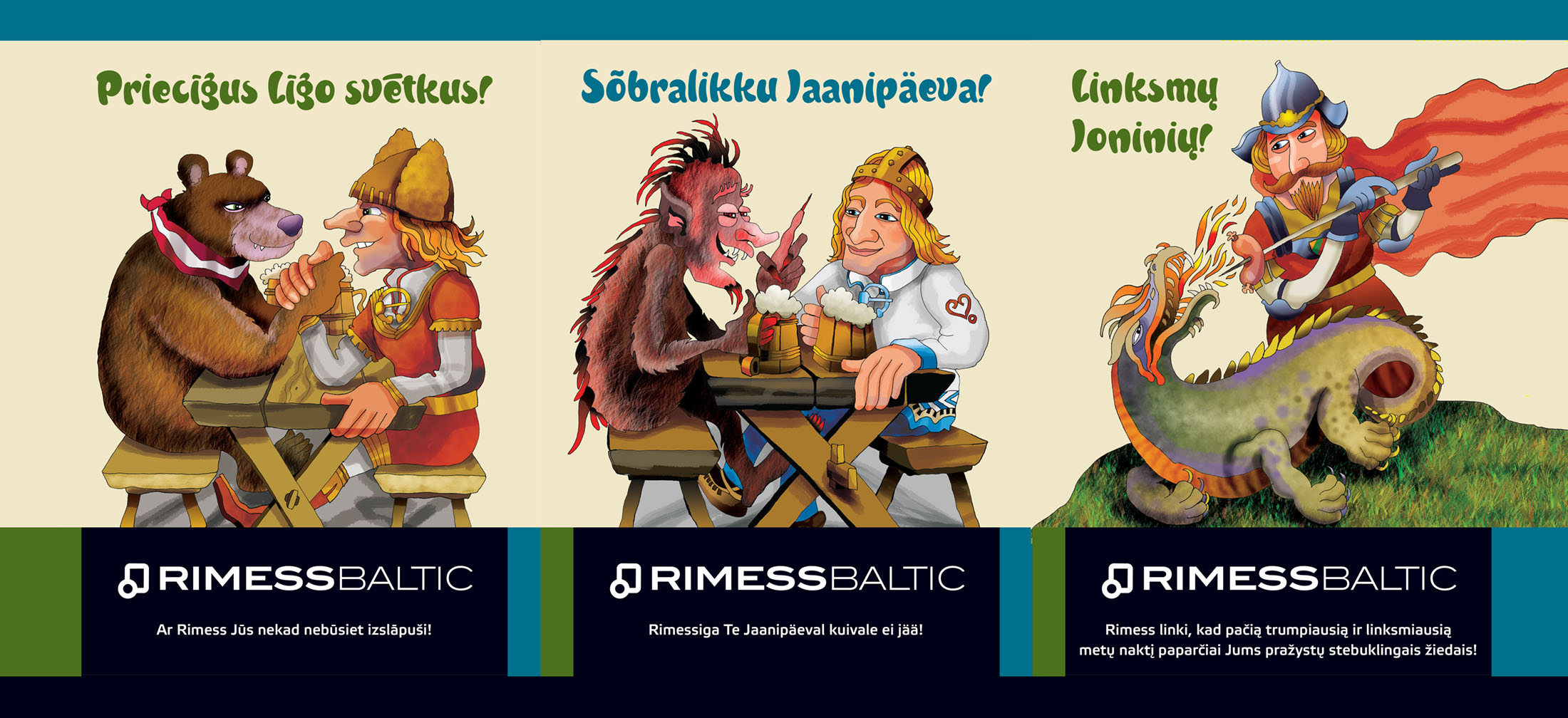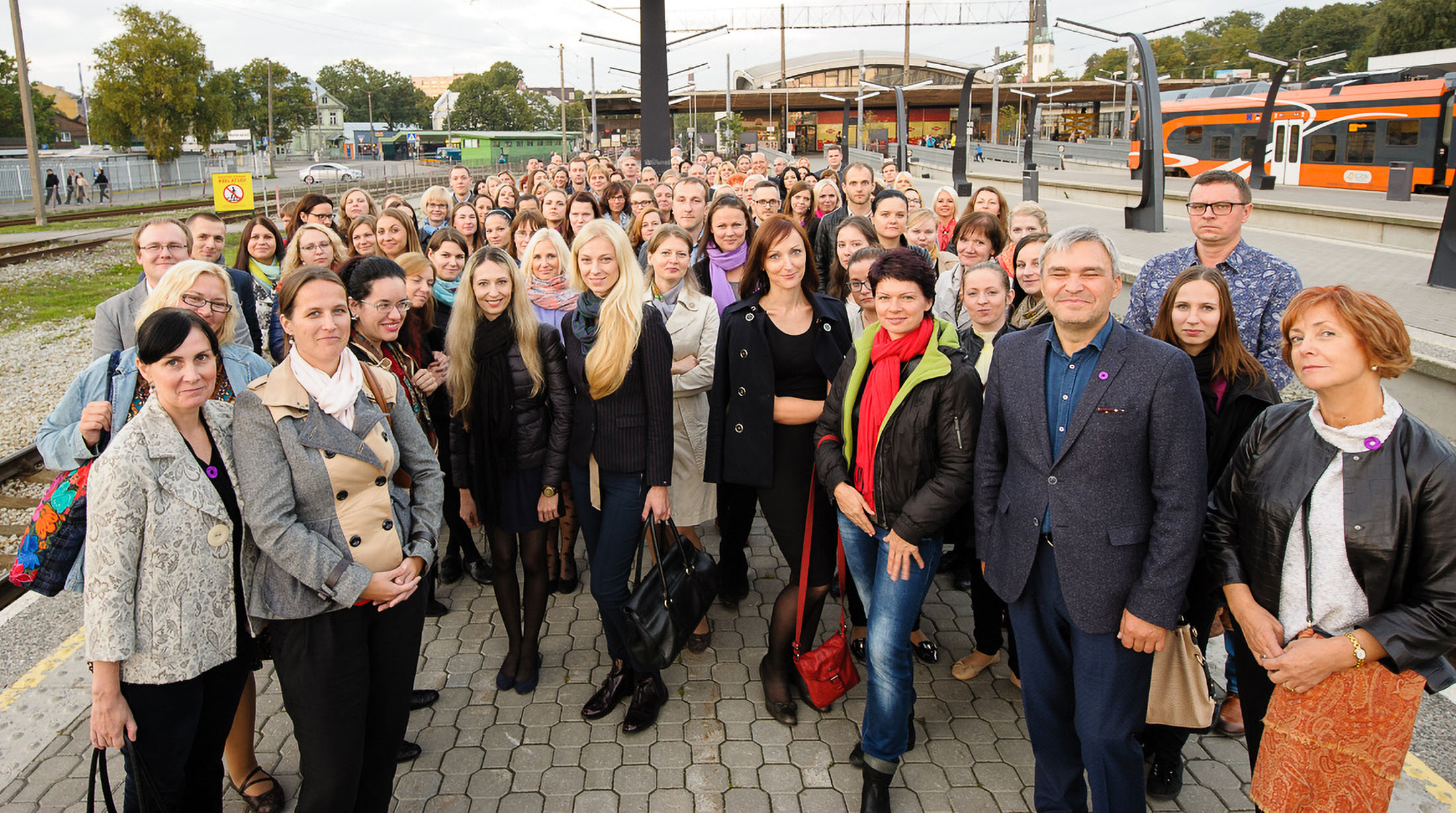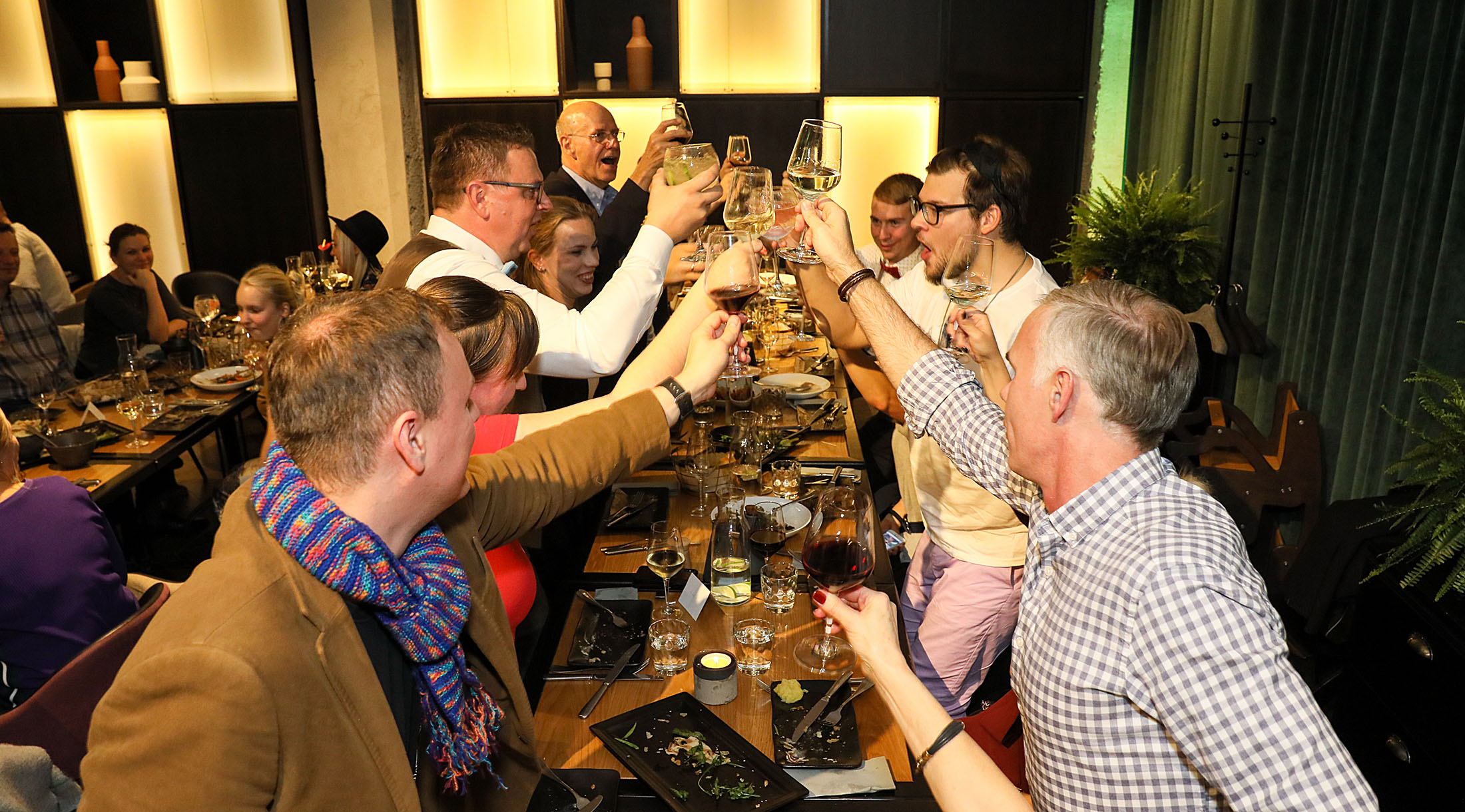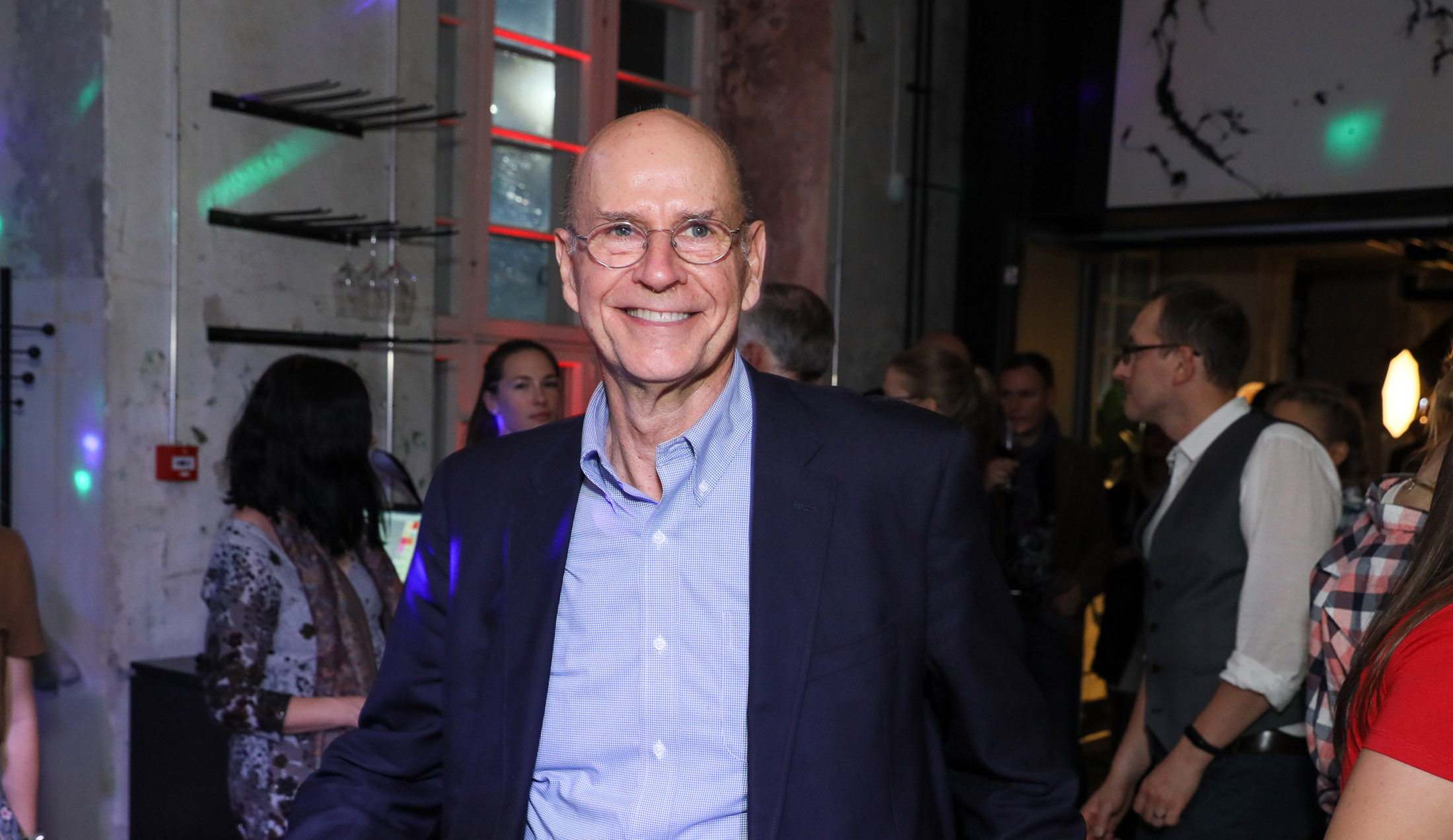One company, three cultures
Mati Nõmmiste, Eva Veinberg and Artur Suits’ ambition was to create the first accounting, audit and business advisory firm with a single management and operating philosophy in the Baltic States when they expanded into Latvia and Lithuania. However, the journey towards this goal was a rocky one. Suits explains: “We started to reorganise things in the Lithuanian and Latvian companies to introduce the same working culture and brand, and to adopt the same tools, such as audit methodology.”
The implementation of a common methodology in all of the Baltic countries was successful, and the common brand Rimess Baltic was introduced in 2009. However, what they lacked was a similar company and management culture.
Nõmmiste explains: “We were naive and assumed that what worked in Estonia would work in Latvia and Lithuania as well. It turned out that the organisational culture and management styles are different in each of the three countries.” In Lithuania, for example, a management decision is usually discussed between managers and employees, but implemented without much ado. Latvia’s management culture, however, has elements of both the democratic Estonian and imposing Lithuanian styles.
It also soon became clear that managing the Lithuanian and Latvian subsidiaries from Estonia was not working and that day-to-day operations should be managed by local partners. However, strategic directions between partners in three countries can and must be discussed and decisions taken jointly. Lithuanian managing partner Genadijus Makuševas says that each country obviously has its own way of thinking, but problems can only be solved through cooperation. “If an issue concerns Lithuania, Latvia or Estonia, the partners need to achieve consensus,” he says. “We make decisions by absolute majority: at least 80% of the partners must be in favour.”
The beer box sent to clients for Midsummer 2011 contained one beer each from Estonia, Latvia and Lithuania. Everyone is greeted with happy Midsummer Day wishes in Estonian and Latvian and assured that they will not go thirsty with Rimess. There are also happy Midsummer Day wishes in Lithuanian, including that the magical flowers of the ferns will blossom for the recipient of the gift on the shortest and most joyful night of the year.
Makuševas admits that the biggest difference between the companies of what was then Rimess and is now Grant Thornton Baltic, which are based in three countries, is the management style, but that this difference also has its advantages. “The Estonian partners pay a lot of attention to strategy, which was a bit alien to us in the beginning, but now we’ve adopted that mindset as well,” he reveals.
“In order to achieve your strategic goals, you have to think things through, and the Estonians are good at thinking. They also plan thoroughly, divide tasks up among themselves, and usually achieve their goal. Lithuanians take a slightly different approach. We also have a goal, we decide what needs to be done to achieve it, but we don’t describe the exact process to achieve it, which makes the process somewhat chaotic. But we usually achieve our goals too. The Estonians, though, have taught us to think strategically and deal with processes.”
Train party! Estonian, Latvian and Lithuanian colleagues at the afterparty of the Living the Brand Conference in 2015 at the Baltic Station in Tallinn, where the party took place in a train rented for the company.
Alma Ziziliauskienė adds that sharing knowledge with the Estonian partners allowed the Lithuanian firm to grow organically – there was no need to merge again or buy other companies. “If you have a well thought-out strategy, you can invest in your future,” she says. “That’s why we still attach great importance to nurturing new talent in Lithuania and to cooperation between the academic world and our best experts. If you can see the bigger picture, you can always say ‘yes’ to promising young workers and understand the importance of your role in the community. Involvement in a range of charities, voluntary initiatives and other projects has an impact on how weighty our social responsibility is.”
Dainis Tunsts says that differences in work culture are natural and that there’s no point in harmonising them too much, as each country’s market and client structure must be taken into account – which is the trump card that Grant Thornton Baltic holds. “It would not be right to introduce the exact same model in every country, because flexibility and consideration of local needs would then be lost,” he cautions. “But even though we operate in different countries, we feel like one team.”
The party of the managers’ conference at the Korsten Kitchen restaurant in Tallinn, 2018. Glasses are raised to traditional cheers, with the table who shouts the loudest being the best.
Looking back on almost two decades of expansion, Mati Nõmmiste says it served as good personal development and leadership training for his Estonian partners. He explains: “In expanding into the other Baltic States and setting up businesses there, we had to think through our strategy to articulate what we wanted to become. Then, we had to tackle a task that was at least as important: convincing others that the strategy we’d proposed was the right one. So for our own development and to achieve the right mindset, it was a very good exercise that we carried out over a long period of time, and it taught us the culture of negotiation and motivation.”
The belt that saved the day
Jérôme Adam, Manager of European Countries at Moores Rowland International, remembers his first trip from Tallinn to Riga and on to Vilnius in December 1995. He was travelling with Mati Nõmmiste and their goal was to meet members of the Latvian and Lithuanian MRI network.
Adam explains: “We took the bus to Riga and decided to take the night train to Vilnius. We arrived at the railway station at half past nine. It was pitch black. Nevertheless, we found our train, and although we were travelling in first class, the conditions were very basic. For example, we had to pay extra for a pillow and bed linen. And you couldn’t lock the door of your compartment. In order to prevent anyone from getting into the compartment to steal our passports, I decided to use the belt from my trousers to ‘lock’ the door – it was a sliding door of two halves and I secured the belt around the handles.
The journey from Riga to Vilnius was very noisy and very slow, taking about 13 hours altogether. We got there in the morning though, and we hailed a taxi to take us from the train station to the hotel we’d booked. Unfortunately, the driver couldn’t find it. “Maybe it hasn’t even been built yet,” he suggested. He took us to Inturist instead, but it turned out afterwards that the hotel we’d originally chosen did exist after all – the driver just didn’t know where it was!”
Jérôme Adam.





